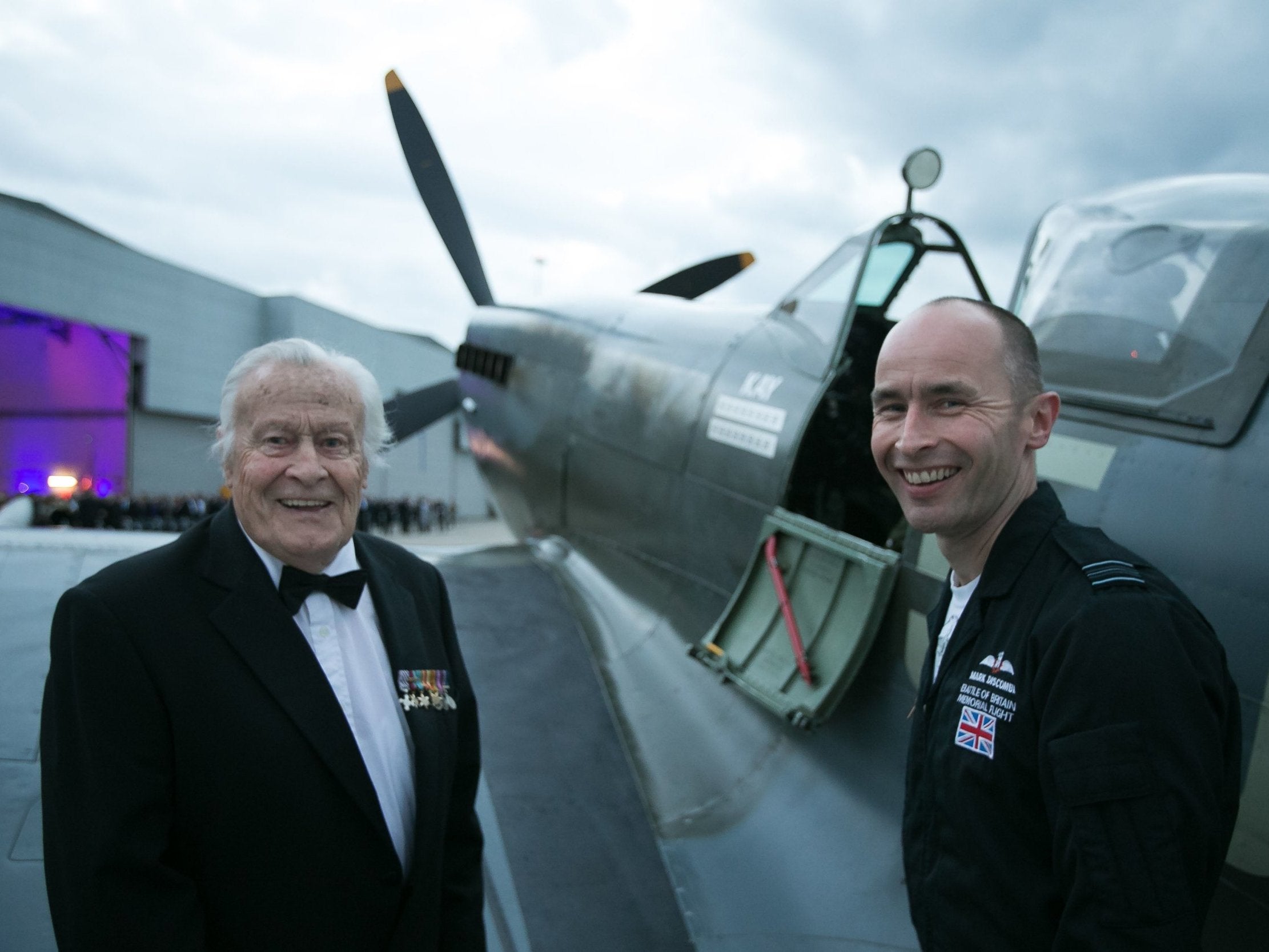Geoffrey Wellum: Youngest RAF pilot to fly in Battle of Britain dies aged 97
Veteran was just short of his 18th birthday when in 1939 he signed up to become a Spitfire pilot

Your support helps us to tell the story
From reproductive rights to climate change to Big Tech, The Independent is on the ground when the story is developing. Whether it's investigating the financials of Elon Musk's pro-Trump PAC or producing our latest documentary, 'The A Word', which shines a light on the American women fighting for reproductive rights, we know how important it is to parse out the facts from the messaging.
At such a critical moment in US history, we need reporters on the ground. Your donation allows us to keep sending journalists to speak to both sides of the story.
The Independent is trusted by Americans across the entire political spectrum. And unlike many other quality news outlets, we choose not to lock Americans out of our reporting and analysis with paywalls. We believe quality journalism should be available to everyone, paid for by those who can afford it.
Your support makes all the difference.The youngest Spitfire pilot to fly in the Battle of Britain has died, it has been announced.
The Battle of Britain Memorial Trust said former squadron leader Geoffrey Wellum died at his Cornwall home.
He was approaching his 97th birthday.
Mr Wellum was just short of his 18th birthday when in 1939 he signed up to become a Spitfire pilot based at Biggin Hill in Kent.
In later life he became a best-selling author after his memoir, First Light, was published in 2002.
Shortly after it was published, in an exclusive interview with The Independent that he was at his lowest ebb when he decided to write it.
“I was losing my house, my divorce was coming, my son was at university,” he said. ”I had nowhere to live. Everything was pear-shaped.”
He added: “I just wanted to sit quietly and convince myself...” He takes a deep breath. “That at some point in my life I had been of use.”
Never intending his memoir for publication, he gave it to James Holland, a young author researching a novel set during the Second World War.
Holland showed it to friends at Penguin, who immediately decided to publish it.
It told of Wellum’s journey from confident 17-year-old schoolboy to his emotional and physical breakdown on Malta three years later.
Throughout the summer of 1940, in the skies above southern England, he battled the Luftwaffe to prevent invasion along with his comrades.
The average life-expectancy of a Spitfire pilot was four weeks. Wellum got used to close friends never returning.
He coped by believing he would not be killed, he said.
“It was always the other chap,” he added. My poor parents, they must have been very brave. Every night, listening to the news on the wireless – ‘Ten of our Spitfires are missing’.”
After two years of near constant action, with dozens of colleagues killed or wounded, Wellum’s youthful enthusiasm had disappeared forever, replaced by a weary acceptance of death.
He had already begun to experience sharp waves of pain across his forehead when, in 1941, he was sent to help raise the siege of Malta. He reached the island by flying off a lethally short aircraft carrier.
Shortly after arriving, the doctor told him he was “played out mentally and physically”. He was 21 and his war was over.
After returning to Britain he said his experience ”made me want to put a value on life”.
He added: “I decided that if I survived, I wanted to be allowed to relish it. Now, I have a life of deep tranquillity: I sing in the choir, I’m the deputy harbour master, I help out at church.”
Join our commenting forum
Join thought-provoking conversations, follow other Independent readers and see their replies
Comments